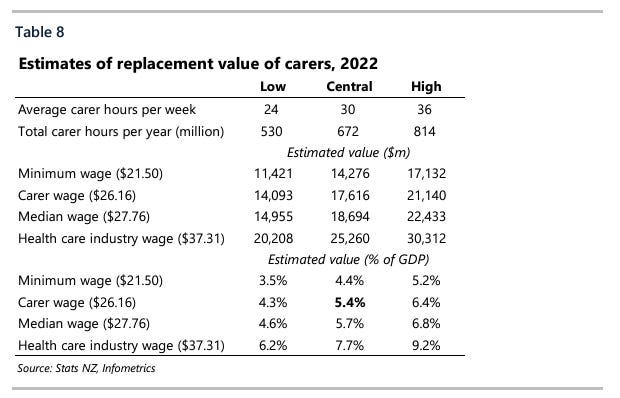It's the little things
Communicating care and value for parents and families requires intent
It’s been a long and bruising year in the disability sector. Disabled people and families have taken hit after hit.
We’ve been promised better. The Minister of Disability Issues has repeatedly stated that shifting disability support services (DSS) into the Ministry of Social Development (MSD) will improve efficiency, services, and long-term sustainability. Much has been made of the seven recommendations of the independent review. There is now have a taskforce that is implementing said recommendations.
Alas. The very first newsletter out of the new taskforce does not augur well. The first iteration had zero mention of parents, families, carers or whānau.
A later, hastily updated iteration included a brief sentence acknowledging that the year has been “tough for disabled people, carers, whānau and the wider disability sector.”
There was no apology for failing to include us to start with.
The taskforce was careful to repeat the Ministers standard lines of blaming the previous government and touting the need for brutal change to ensure stability. Nonetheless, it was clear that we, as family, as carers, as parents, were unimportant.
Communicating respect and value requires, at the very least, acknowledging our existence.
The focus of the very first public communication was on budgets, service providers and NASCs. Parents, families, and carers were an afterthought, carelessly thrown in only after parents organised, agitated, and emailed.
Parents of disabled children are feeling vulnerable, exhausted, and trapped in a system that demands they provide additional care while simultaneously refusing support. It’s a lot.
And now the very taskforce that is meant to be making things better can’t even be bothered to mention parents, let alone “consult” with any parent or family-led groups.
One such group is Carers NZ, who act as Aotearoa’s peak body for over 1 million family, whānau and aiga carers. Carers NZ are also the Secretariat for the Carers Alliance (comprising of 60+ national not for profits). Yet it seems that even this group, who represent a significant chunk of carers, have been overlooked and ignored.
Aotearoa New Zealand is increasingly relying on parents and family carers to meet the gap between need and proffered supports. The most recent Infometrics report on the Economic Contribution of Caregiving estimated our unpaid work as having an annual economic value of $17.6 billion or 5.4% of GDP. To put this in context, there are 7.9 unpaid carers for every practising nurse, and 9.6 unpaid carers for every personal care assistant or aged and disability sector carer.
This unpaid work is typically referred to in government documents as “natural supports”. Support Package Allocation (SPA) Guides (which have not been updated since 2016!), include the existence of natural supports as a mechanism to reduce the level of disability support offered to families.

There is nothing natural about the level of support that is being required of parents and families for disabled loved ones. Reliance on families to provide this care escalated through the pandemic and has been exacerbated by the recent disability support cutbacks and changes.
It is neither sustainable, nor stable, nor economically viable for families to continue. Our collective mana has been trampled on, leaving us sensitised and vulnerable. Leaving us out of newsletters, consultation rounds, and documentation communicates a lack value and recognition of our role.
Parents, families, whānau and aiga deserve to be respectfully included, treated with value, kept informed, and well supported to sustain them in their role of caring.
What can we do?
It can be hard, hearing these stories and feeling powerless when so much is being stripped away and eroded. But. There is much we can do:
Individual action (mostly online):
You can keep raising awareness by sharing disabled and parent led stories in the media. This government is sensitive to public criticism and desperate to convince the public they are in control and doing well. Sharing the reality people are experiencing tears down their carefully crafted narrative.
You can email the taskforce on dss_ideas@msd.govt.nz and ask that they centre disabled people and families in all they do.
You can email your local MP and ask them to ensure that disabled people and families get the support they need.
You can remind people that we have the money we need. This idea that we have no money is a lie, a falsehood, a narrative carefully crafted to justify cutting needed services. This government has spent billions on the already wealthy. That is a clear political statement and choice.
Collective action (mostly outdoors):
Join a disabled-led protest (or assist with organising one).
Sign up to attend your local Maranga Ake Fight Back Together day of action on the 23 October (hosted by NZCTU).
Join your union, sign up with local groups, join in with agitators, or even join your local professional body and work to radicalise them.




